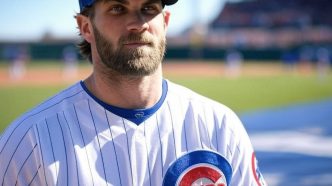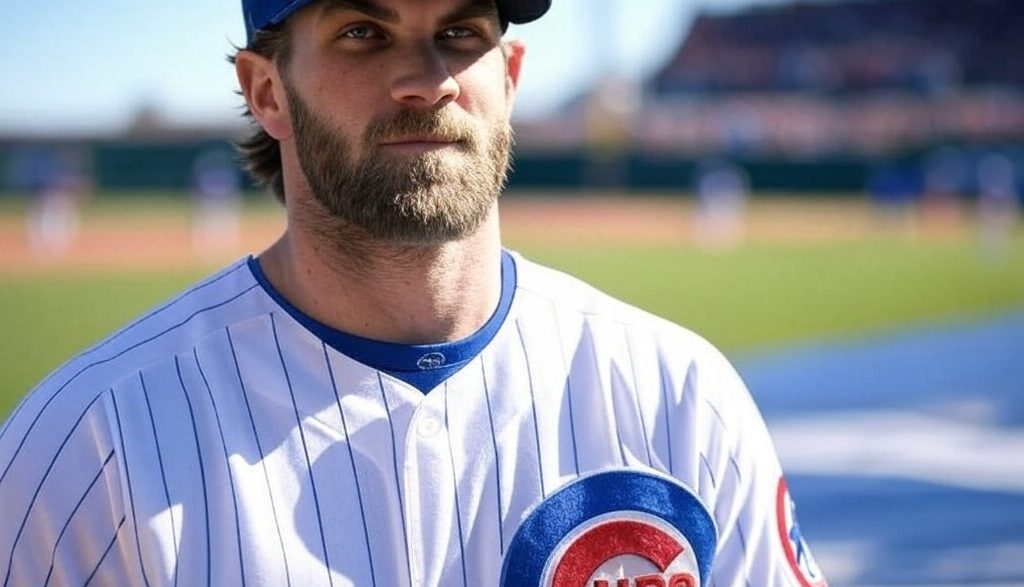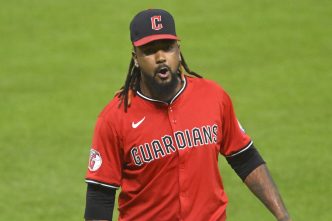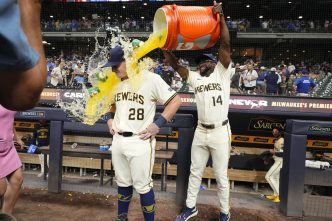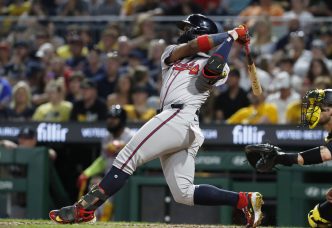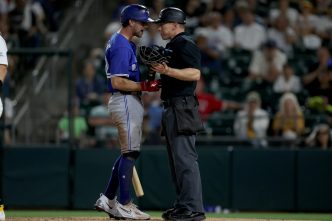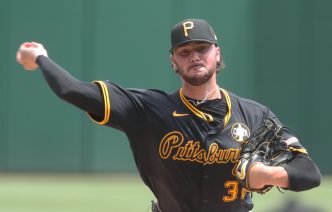Imagine a world where Bryce Harper, the Philadelphia Phillies’ All-Star first baseman, ended up with the Chicago Cubs instead. It’s a scenario that was closer to reality than many might think, as Harper revealed before the Phillies’ game against the Cubs at Wrigley Field on Saturday, April 26, 2025. Speaking with reporters from The Athletic, the two-time National League MVP dropped a bombshell about his 2018 free agency: “Going into that offseason, they were the No. 1 team on my list. Without a doubt.” So why didn’t Harper, one of baseball’s biggest stars, land on the North Side? And what might have happened if he had?
Harper’s affinity for the Cubs made sense at the time. Coming off his age-25 season with the Washington Nationals in 2018, where he hit .249/.393/.496 with 34 homers and led the NL with 130 walks, Harper was the prize of the free-agent market. The Cubs, fresh off their 2016 World Series title, were still a powerhouse, having made the playoffs four straight years from 2015 to 2018 with a core of Kris Bryant, Anthony Rizzo, and Javier Báez. They finished 2018 with a 95-68 record, tying for the best in the NL, though they lost to the Colorado Rockies in the wild-card game. Harper, a Las Vegas native who grew up idolizing Mickey Mantle, saw Wrigley Field’s history and the Cubs’ young, talented roster as the perfect fit. Plus, Chicago had the financial muscle to make a big splash, with owner Tom Ricketts reportedly willing to spend after the team’s early playoff exit.
But the Cubs never even made contact with Harper’s camp. Instead, GM Jed Hoyer and president Theo Epstein focused on extending their championship core—Bryant, Rizzo, and Báez—hoping to keep the window open. That strategy backfired. By 2021, the core had unraveled: Rizzo was traded to the Yankees, Bryant to the Giants, and Báez to the Mets, all midseason, as the Cubs finished 71-91 and began a rebuild. Meanwhile, Harper signed a 13-year, $330 million deal with the Phillies on March 2, 2019, a contract that’s proven to be a win for both sides. Since joining Philadelphia, Harper has been a force, slashing .285/.408/.531 with 134 homers through 2024, earning two MVP awards (2021, 2023), and leading the Phillies to a World Series appearance in 2022, NLCS trips in 2023 and 2024, and their first NL East title since 2011 last year. At 32, he’s still in his prime, hitting .289 with 15 homers through April 26, 2025, as the Phillies sit at 17-11, tied for first in the NL East.
What if the Cubs had pursued Harper? Let’s break it down. In 2019, Harper’s first year with the Phillies, he hit 35 homers and posted a .882 OPS, worth 4.2 WAR (per Baseball-Reference). The Cubs, meanwhile, went 84-78, missing the playoffs for the first time since 2014. Their offense was solid—Rizzo hit 27 homers, Báez had 29, and Bryant added 31—but they lacked consistency, ranking 9th in the NL in runs scored (814). Harper’s power and patience (he drew 99 walks in 2019) could have pushed them over the edge, especially in a tight wild-card race where they finished three games behind the Brewers. With Harper at first base, Rizzo might have shifted to DH or been traded earlier, potentially altering the Cubs’ roster decisions. Yu Darvish, who struggled in 2019 with a 3.98 ERA, might have benefited from more run support, and the Cubs could have made a deeper playoff run, possibly delaying their 2021 fire sale.
Fast forward to 2020 and 2021, and Harper’s presence might have changed the Cubs’ trajectory. The shortened 2020 season saw Chicago go 34-26 and win the NL Central, but they were swept by the Marlins in the wild-card round, scoring just three runs in two games. Harper, who hit 13 homers in 58 games for the Phillies that year, could have been the difference-maker in that series, especially with his .420 on-base percentage. In 2021, the Cubs collapsed, trading away their stars as they finished 71-91. Harper’s MVP season with the Phillies—35 homers, a .615 slugging percentage, and 5.9 WAR—would’ve given the Cubs a cornerstone to build around, potentially convincing ownership to keep the core intact rather than blowing it up. Imagine Harper paired with a young Ian Happ, who broke out in 2022 with 17 homers, or Nico Hoerner, whose .297 average in 2023 showed his potential. The Cubs might have avoided their 2021-2022 rebuild, staying competitive in the NL Central.
Would Harper have won a championship in Chicago? It’s hard to say. The Cubs’ pitching, led by Kyle Hendricks and Jon Lester in 2019, was solid but not elite, and their rotation took a hit after Lester left in 2021. Harper’s Nationals won the World Series in 2019, the year after he left, with a lights-out postseason run from Stephen Strasburg and Anthony Rendon—something the Cubs lacked. Harper’s postseason track record is strong (1.008 OPS in 49 games), but the Cubs would’ve needed more than just him to get over the hump, especially against powerhouses like the Dodgers, who dominated the NL from 2019 to 2022. Still, Harper’s bat could have kept the Cubs in contention longer, potentially leading to a playoff breakthrough in 2020 or 2022, when they returned to the postseason with a 92-70 record.
For the Cubs, missing out on Harper remains a what-if that stings, especially as they watch him thrive in Philadelphia. Since 2018, Chicago has made the playoffs just twice (2020, 2022), with no series wins, while Harper’s Phillies have been a consistent postseason threat. But the Cubs have a chance to rewrite their story this offseason with another lefty-hitting superstar: Astros outfielder Kyle Tucker, who’ll hit free agency after 2025. Tucker, 28, is coming off a 2024 season where he hit .284 with 23 homers in 78 games despite a shin injury, and his 5.6 WAR over the last three years trails only Aaron Judge among outfielders. The Cubs, with $93 million in projected 2026 payroll space (per Spotrac), could pair Tucker with Happ and Seiya Suzuki, creating a formidable outfield to chase that elusive second title of the century. Harper may be unfinished business, but Tucker offers a shot at redemption—and maybe a championship Harper never brought to Wrigley.

